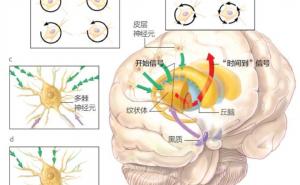一项研究发现,选择和行为影响着长期的幸福感,而不管遗传和人格特征如何。该研究结果10月4日在线发表于美国《国家科学院院刊》(PNAS)上。
Bruce Headey及其同事分析了来自德国社会经济委员会调查的数据——这是在1984到2008年之间对成年和青年家庭成员进行的一系列年度调查——结果发现,一大批德国人口在这25年中经历了长期而且看上去持久的关于幸福感的变化。
这组作者提出,他们的发现与流行的“设定点”理论相抵触,后者认为一个人的幸福感由于人格特性和遗传因素而在长期保持稳定。该研究发现、生活的目标和选择、宗教、伴侣的情绪稳定性、工作和休闲的平衡、社会参与以及健康的生活方式对生活满足感的影响与外向性、已婚或有伴侣等变量对生活满足感的影响类似、或者前一组的影响更大。
该分析显示伴侣的相似性与生活满足感之间没有联系,但是它发现更重视利他主义的目标或家庭目标的人比那些更重视职业和物质成功的人对生活更满足。对于女性,肥胖和伴侣对家庭目标的重视程度低比单身更能减少生活满足感。
这组作者说,关于长期生活满足感并不必然稳定的证据可能带来对幸福感研究的更大的政治和科学兴趣。
心理学之家 推荐原文英文摘要:
PNAS doi:10.1073/pnas.1008612107
Long-running German panel survey shows that personal and economic choices, not just genes, matter for happiness
Bruce Headeya,1, Ruud Muffelsb, and Gert G. Wagnerc
aMelbourne Institute, Melbourne University, Parkville, Victoria 3052, Australia;
bDepartment of Social Sciences, Tilburg University, 5000, Le Tilburg, The Netherlands; and
cGerman Institute for Economic Research and Max Planck Institute for Human Development, 10117 Berlin, Germany
Psychologists and economists take contradictory approaches to research on what psychologists call happiness or subjective well-being, and economists call subjective utility. A direct test of the most widely accepted psychological theory, set-point theory, shows it to be flawed. Results are then given, using the economists’ newer “choice approach”—an approach also favored by positive psychologists—which yields substantial payoffs in explaining long-term changes in happiness. Data come from the German Socio-Economic Panel (1984–2008), a unique 25-y prospective longitudinal survey. This dataset enables direct tests of theories explaining long-term happiness.
www.nmgpsy.com内蒙古心理网


